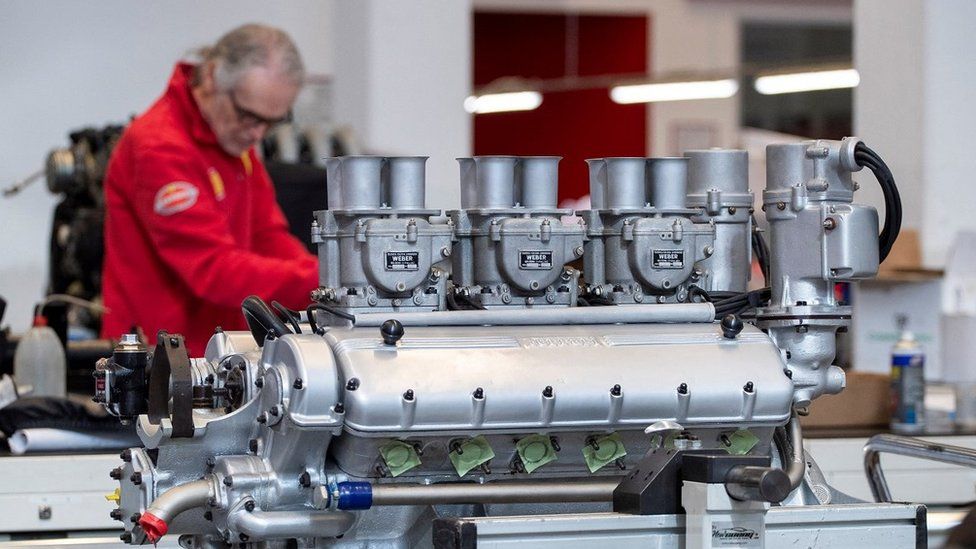ARTICLE AD BOX
 Image source, Reuters
Image source, Reuters
By Theo Leggett
Business correspondent, BBC News
Ferrari will continue to build cars with internal combustion engines into the late 2030s, despite efforts by governments around the world to phase out the technology.
The boss of the Italian manufacturer said it would be "arrogant" to dictate to customers what they can buy.
For Ferrari, as for many other premium brands, the move towards electric cars presents a steep marketing challenge.
But the company is due to introduce its first electric supercar in 2025.
Traditionally, the raucous sound of an eight or 10-cylinder internal combustion engine has been a key part of its appeal. But battery-powered cars are much quieter.
Nevertheless, Ferrari is planning to launch its first fully electric model in two years' time - a design the company insists will offer a "unique driving experience".
This puts it at odds with rival brand McLaren, whose CEO told an FT automotive summit this week the technology was "not ready" for use in supercars, due to the weight of the batteries.
Last year, Ferrari unveiled plans for a three-pronged approach in developing new vehicles, as part of a commitment to becoming carbon neutral by 2030. It said electric cars and hybrids would make up an increasing proportion of its range by the end of the decade.
But it insisted it would continue to develop internal combustion engines as well, to build on what it called "an essential part of the company's heritage".
Until recently that strategy appeared to have a limited lifespan, with a number of major markets preparing to ban the sale of new cars with internal combustion engines by 2035.
In March, however, the European Union agreed to provide an exemption from its own ban for cars run exclusively on synthetic "e-fuels", produced using renewable energy.
Such fuels are expected to be expensive, but the loophole means performance car makers will still be able to sell models with engines across one of the world's biggest markets.
In a BBC interview, Mr Vigna pointed to this decision as a sign that technology was evolving, and denied doing so would undermine the company's environmental credentials.
"I don't want to be arrogant and impose a choice on our client," he said.
"It is the client who must choose if they want an ICE (internal combustion engine), a hybrid or an electric car."
But in other markets, including the UK, no such loophole for e-fuels yet exists. That raises the possibility of some Ferrari models being available in the EU, but banned elsewhere.
"We have to cope with the rules of all the countries we operate in," said Mr Vigna.
"The reason we have three kinds of propulsion - ICE, hybrid and electric - is that it allows us to cope with any regulation, all over the world."

 1 year ago
26
1 year ago
26








 English (US) ·
English (US) ·